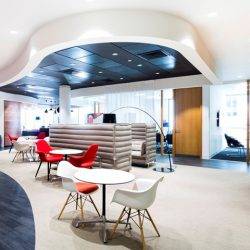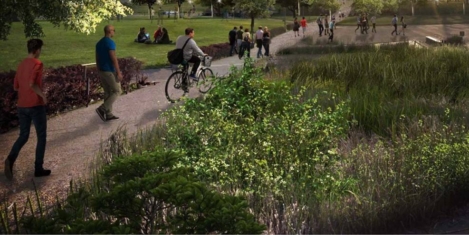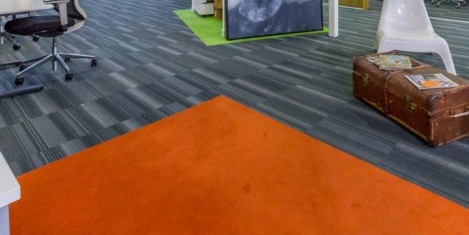March 13, 2017
Workplace strategy, automation and flexible working rising up the corporate agenda 0
 Corporate real estate occupiers must do more to embrace flexible working and identify the sources of competitive advantage offered by their workplaces, according to the newly published Corporate Real Estate (CRE) 2017 trends report from JLL. The study highlights the key issues affecting corporate property needs and requirements this year, and offers occupiers some advice on how to deal with them, including how real estate strategy affects organisational perfomance. As well as flexible working and real estate strategy, the report also considers the consequences of automation, which it suggests will have a significant impact on the way workplaces are designed, occupied and managed within just a few years,
Corporate real estate occupiers must do more to embrace flexible working and identify the sources of competitive advantage offered by their workplaces, according to the newly published Corporate Real Estate (CRE) 2017 trends report from JLL. The study highlights the key issues affecting corporate property needs and requirements this year, and offers occupiers some advice on how to deal with them, including how real estate strategy affects organisational perfomance. As well as flexible working and real estate strategy, the report also considers the consequences of automation, which it suggests will have a significant impact on the way workplaces are designed, occupied and managed within just a few years,















 Very few organisations are ready to manage a workforce where the latest technologies and people work side by side. Just 13 percent of UK companies are ready to respond to digital disruption and create “the organisation of the future”; despite 88 per cent believing this has become a priority. This is according to the 2017 Deloitte Global Human Capital Trends survey, which tracks the top trends shaping the agenda for HR and business leaders. However, while UK companies believe they are ill-prepared for the change brought by digital disruption, this has not stopped many of them from embracing disruptive technologies. 42 per cent report that they have adopted robotics, cognitive and artificial intelligence (AI) technologies within all or parts of their workforce. Another 42 per cent are running pilots in certain areas of their organisation. But only 16 per cent say they are ready to manage a workforce with people, robots and AI working side by side.
Very few organisations are ready to manage a workforce where the latest technologies and people work side by side. Just 13 percent of UK companies are ready to respond to digital disruption and create “the organisation of the future”; despite 88 per cent believing this has become a priority. This is according to the 2017 Deloitte Global Human Capital Trends survey, which tracks the top trends shaping the agenda for HR and business leaders. However, while UK companies believe they are ill-prepared for the change brought by digital disruption, this has not stopped many of them from embracing disruptive technologies. 42 per cent report that they have adopted robotics, cognitive and artificial intelligence (AI) technologies within all or parts of their workforce. Another 42 per cent are running pilots in certain areas of their organisation. But only 16 per cent say they are ready to manage a workforce with people, robots and AI working side by side.




 Implementing new technologies over the next 12 months is of primary importance for senior managers, with nearly two-fifths of finance directors saying digital transformation is one of their greatest priorities. Against a backdrop of economic uncertainty, chief financial officers (CFOs) are focusing on increasing profitability (41 percent) and driving overall company growth (39 percent) in the year ahead, according to research from,
Implementing new technologies over the next 12 months is of primary importance for senior managers, with nearly two-fifths of finance directors saying digital transformation is one of their greatest priorities. Against a backdrop of economic uncertainty, chief financial officers (CFOs) are focusing on increasing profitability (41 percent) and driving overall company growth (39 percent) in the year ahead, according to research from, 












March 15, 2017
Mobile and internet connectivity should be a priority for commerical real estate 0
by Sara Bean • Comment, Facilities management, News, Property, Technology
Cluttons has proposed that a mobile coverage rating should be added to lettable workspace criteria, because despite mobile and internet connections being the fifth essential utility for the modern environment they are often overlooked when leasing space. With the rise of dependence on SIM-based equipment, the property firm argues that workplaces should be let with a coverage rating, measuring connectivity within a property. It argues that given the fast-paced evolving nature of the sector, landlords who invest in excellent telephony infrastructure are likely to secure tenants for longer periods and potentially achieve higher rental values. The approach is being borne out by the government recognising the importance of better mobile and internet infrastructure, by making it a focal point to extend superfast broadband to 95% of the UK by the end of 2017. This comes as no surprise given that several emerging markets are leap-frogging the adoption of technology and are quickly outpacing the UK in the sophistication of infrastructure on offer to occupiers. London is ranked near to the bottom of the internet connectivity league table when looking at Europe.
More →